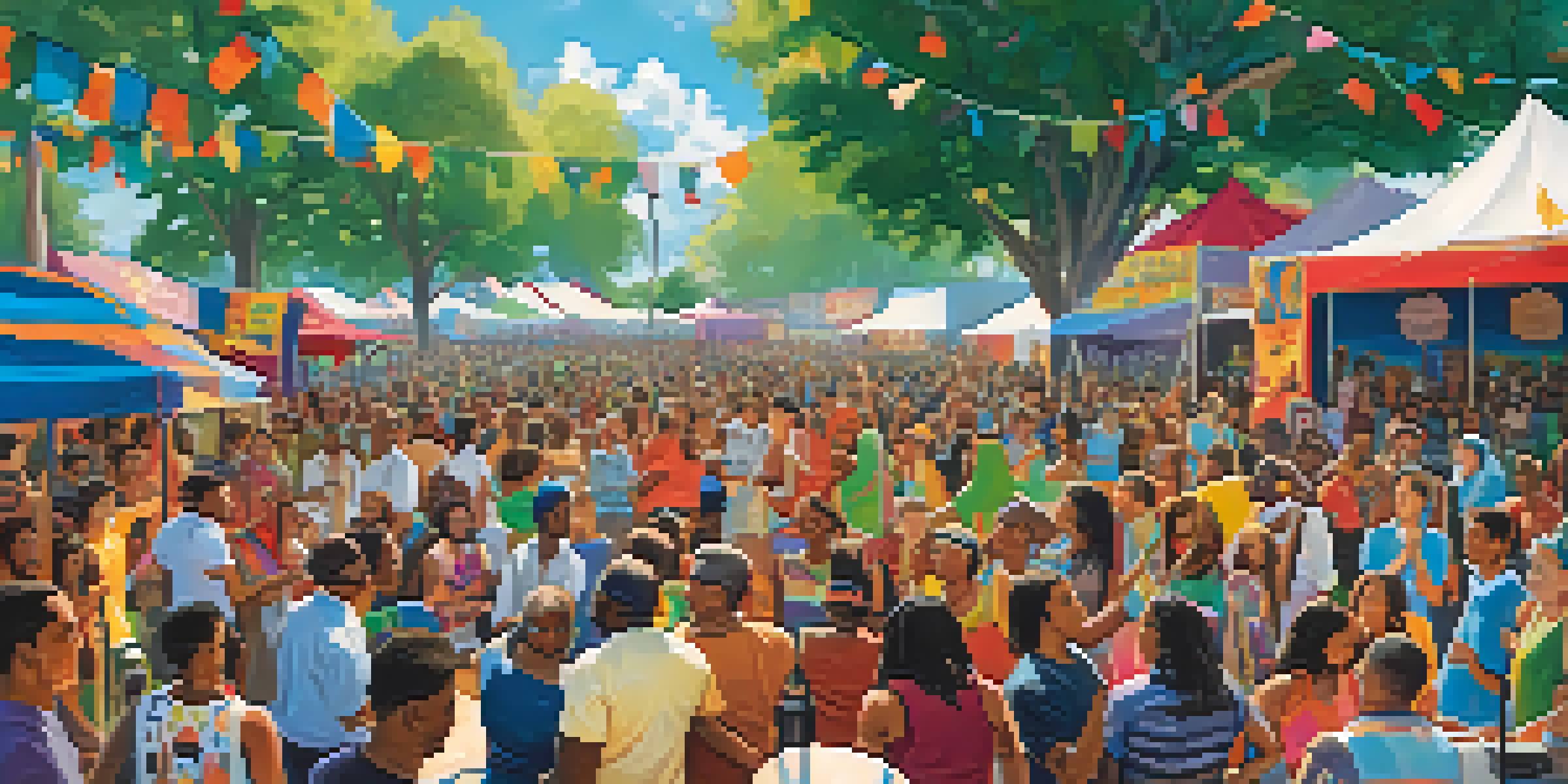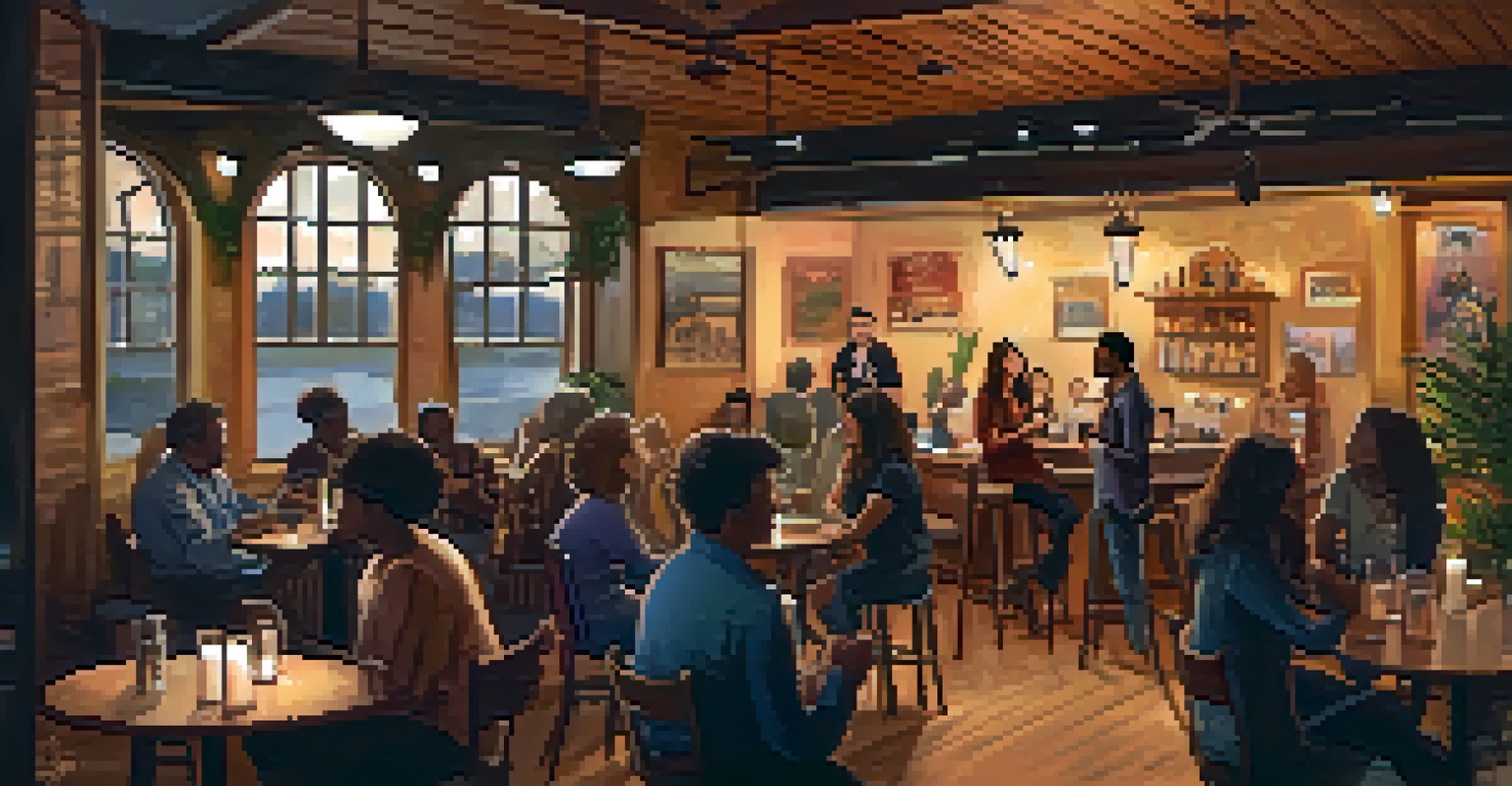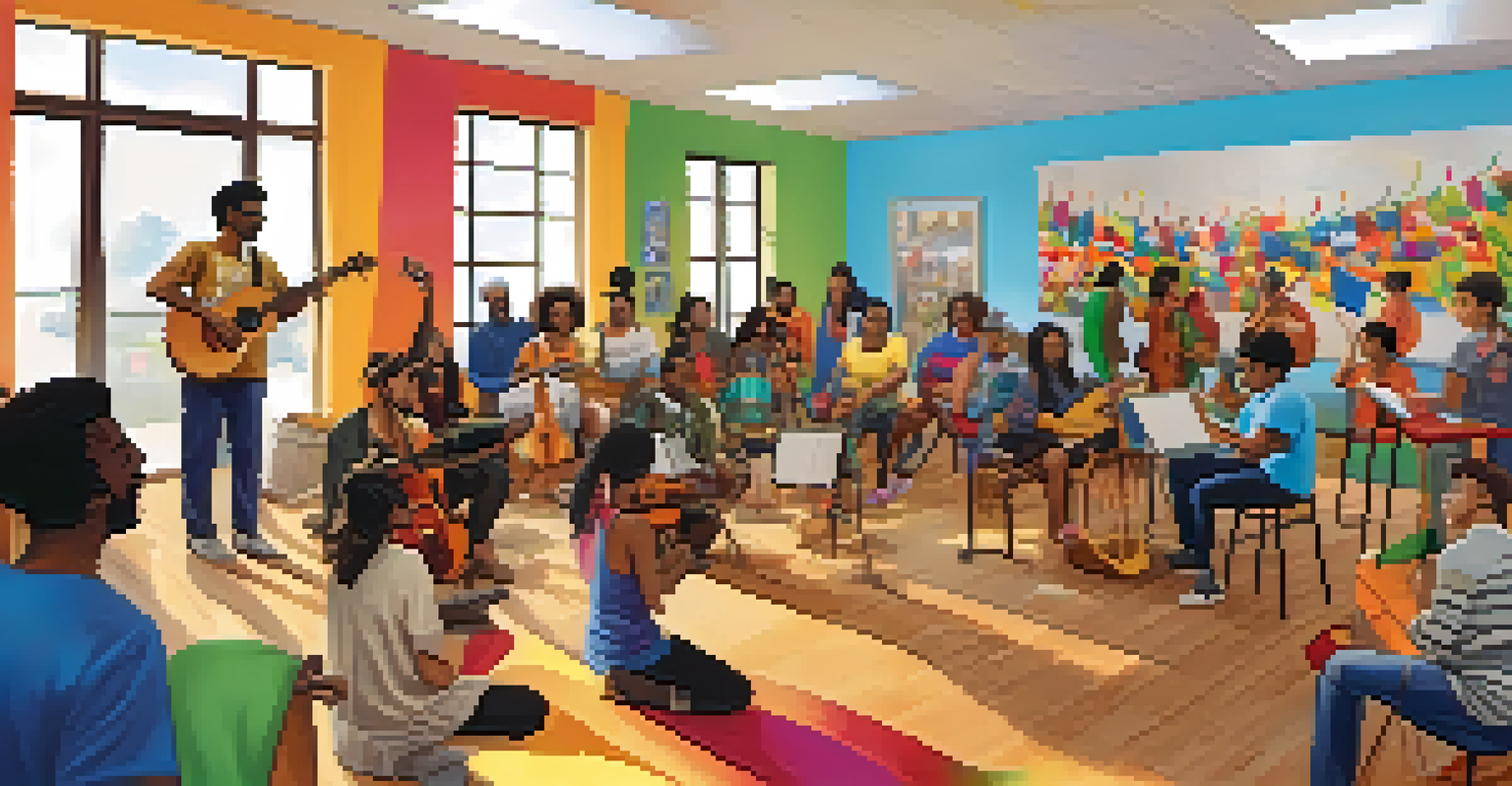Music as a Catalyst for Dialogue and Understanding in Communities

The Universal Language of Music in Communities
Music is often described as a universal language, transcending barriers like age, culture, and background. It connects people on a level that words sometimes cannot, fostering empathy and shared experiences. Whether it’s a local concert or a community sing-along, music has the power to bring individuals together, encouraging them to engage in meaningful conversations.
Music can change the world because it can change people.
When people gather around music, they often find common ground, allowing them to explore differences in a safe and inviting environment. This shared experience can lead to discussions about cultural heritage, personal stories, and values, creating a deeper understanding among participants. By experiencing music together, communities can break down preconceived notions and stereotypes.
For instance, consider a community festival featuring various musical genres. Attendees may discover new artists and sounds, leading to conversations about their origins and significance. This exchange not only enriches the community’s cultural tapestry but also fosters a sense of belonging and shared identity.
Creating Safe Spaces for Dialogue Through Music
Music can serve as a catalyst for creating safe spaces where individuals feel comfortable expressing themselves. In environments such as open mic nights or community jam sessions, participants can share their stories through songwriting and performance. This openness encourages dialogue and invites listeners to engage without fear of judgment.

By participating in music-making activities, community members can express their emotions and experiences in a non-threatening way. This form of expression can lead to deeper conversations about personal struggles and triumphs, promoting understanding and empathy. When people feel heard and valued, they are more likely to engage in constructive conversations.
Music Fosters Community Connection
Music transcends barriers, bringing people together and encouraging meaningful conversations.
For example, a community workshop that combines music and storytelling can provide a platform for individuals to share their narratives. As participants listen to each other's stories, they begin to understand diverse perspectives, fostering a sense of unity and collaboration among different groups.
Music as a Tool for Conflict Resolution
In times of conflict, music can play a pivotal role in bridging divides and promoting reconciliation. It offers a non-verbal way to address issues and emotions that may be difficult to articulate. Through collaborative musical projects, conflicting parties can find common ground and work towards mutual understanding.
Where words fail, music speaks.
For instance, community choirs or bands that include members from different backgrounds can help individuals learn to collaborate and respect each other's perspectives. The shared goal of creating music shifts the focus from conflict to cooperation, fostering a sense of teamwork and solidarity. This collaborative spirit can be instrumental in resolving disputes and healing rifts within communities.
Moreover, music therapy has been used successfully in various conflict resolution settings, helping individuals process their emotions and communicate more effectively. By harnessing the power of music, communities can create pathways for dialogue that may have previously seemed impossible.
Celebrating Diversity Through Musical Fusion
Musical fusion blends diverse musical traditions, celebrating the richness of different cultures. This fusion not only promotes appreciation for varying artistic expressions but also encourages dialogue about cultural histories and influences. When communities embrace musical fusion, they create an inclusive atmosphere where diversity is valued.
Events like multicultural music festivals showcase a variety of genres, allowing attendees to experience the beauty of different cultures. As people enjoy performances from various backgrounds, they often engage in conversations about the cultural significance of the music and the stories behind it. This exchange fosters mutual respect and understanding.
Dialogue Through Musical Expression
Creating safe spaces for musical collaboration allows individuals to share their stories and promote understanding.
For example, a local festival featuring a fusion of jazz, reggae, and traditional folk music can highlight the interconnectedness of these genres. As participants explore these connections, they gain insight into the historical and cultural contexts that shaped them, sparking rich discussions and greater appreciation for diversity.
The Role of Music Education in Building Community Ties
Music education programs play a crucial role in fostering understanding and connection within communities. By providing opportunities for individuals of all ages to learn and create music together, these programs encourage collaboration and teamwork. Participants often form lasting friendships, creating a sense of belonging and community.
In schools and community centers, music classes can expose students to different cultures and musical styles, broadening their perspectives. This education fosters an appreciation for diversity and helps students understand the stories and experiences that shape various musical traditions. By learning together, they build empathy and respect for one another.
For instance, a community band that includes members from various age groups and cultural backgrounds can offer a space for intergenerational dialogue. As musicians collaborate, they share their unique insights and experiences, enriching the community’s collective knowledge and understanding.
Harnessing Technology to Amplify Musical Dialogue
In today’s digital age, technology has transformed how we create and share music, making dialogue more accessible than ever. Online platforms allow musicians from various backgrounds to collaborate and share their work with a global audience. This connectivity promotes understanding and appreciation for diverse musical traditions.
Social media, streaming services, and virtual music events enable communities to engage in conversations about music and its impact on society. These platforms allow individuals to share their thoughts and experiences, fostering a sense of community despite geographical distances. As people connect through music online, they often find common ground and inspiration.
Cultural Diversity in Musical Fusion
Musical fusion highlights the richness of diverse cultures, fostering mutual respect and dialogue within communities.
For example, virtual music festivals that showcase artists from around the world can spark discussions about cultural influences and artistic expression. Attendees can connect in real-time, sharing their perspectives and experiences, ultimately creating a global dialogue that transcends borders.
The Future of Music as a Unifying Force in Communities
Looking ahead, music will continue to play a vital role in fostering dialogue and understanding within communities. As societies become more diverse, the need for tools that promote empathy and connection becomes increasingly important. Music, with its ability to transcend barriers, is uniquely positioned to serve this purpose.
Community leaders and organizations can harness the power of music to create initiatives that encourage collaboration, expression, and understanding among diverse groups. By investing in music programs and events, communities can cultivate environments where dialogue flourishes, leading to stronger bonds and resilience.

Ultimately, music has the potential to be a unifying force, bringing people together in celebration of their differences and shared humanity. As we embrace music as a catalyst for dialogue, we pave the way for a more understanding and inclusive future for all.